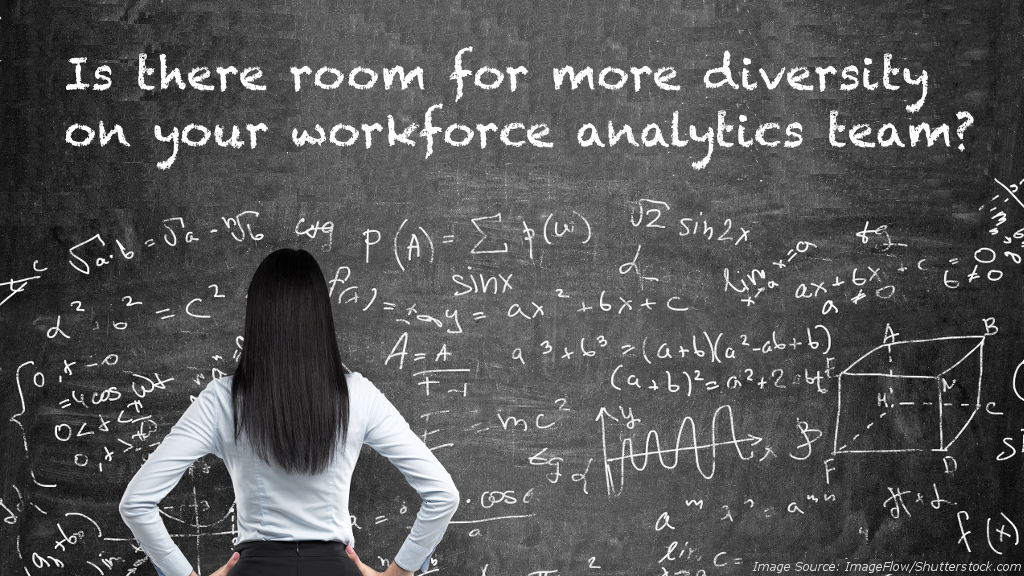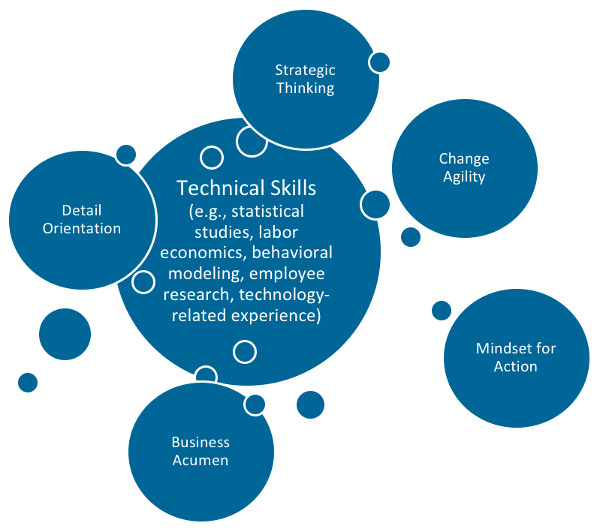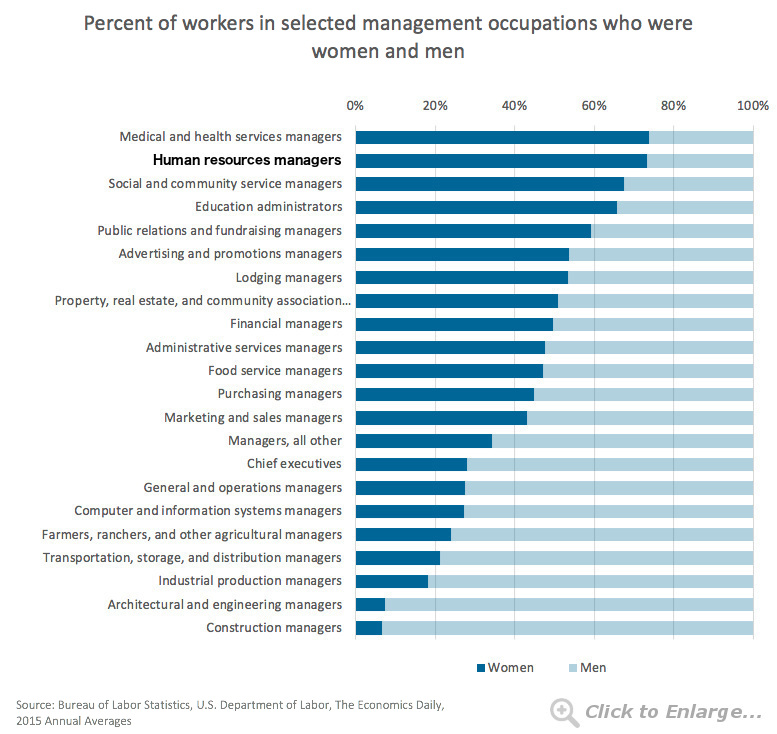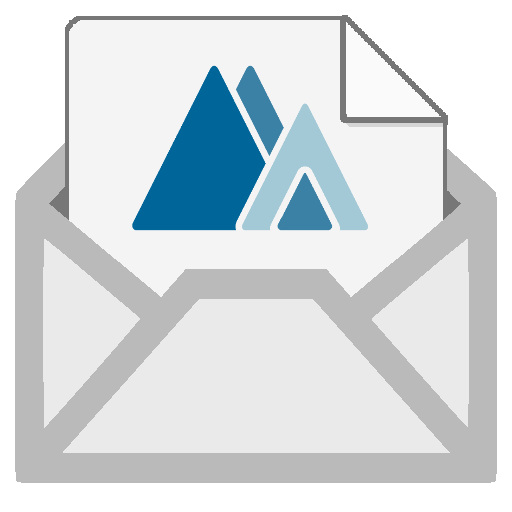RECENT POSTS
-
Pay Equity Disclosure is Just the Beginning
 06/06/2023
06/06/2023
-
Why Performance Reviews Matter for Pay Equity
 04/10/2023
04/10/2023
-
Risk-Based Workforce Planning
 06/17/2020
06/17/2020
-
How do we really know who feels excluded at work?
 09/30/2019
09/30/2019
-
Understanding Today’s Talent Landscape to Drive Diversity and Inclusion
 06/28/2019
06/28/2019
-
Key Take-Aways from the Conference Board's 13th Annual Human Capital Analytics Conference
 11/13/2018
11/13/2018
-
How happy are you with your workforce analytics technology?
 09/25/2018
09/25/2018
-
The four pillars of analytics success for the HR business partner
 08/08/2018
08/08/2018
-
How Unique Is Your Job Title?
 03/27/2018
03/27/2018
-
What's More Important: Performance Management or Workforce Planning?
 02/27/2018
02/27/2018
-
Going Where the Data Leads: Four Questions that You Need to Ask
 01/09/2018
01/09/2018
-
Workforce Analytics: Separating Hype from Substance
 12/19/2017
12/19/2017
-
Pacing Workforce Analytics to Win
 11/28/2017
11/28/2017
-
Selling Workforce Analytics: What's it Worth?
 11/01/2017
11/01/2017

With all the talk — and action — around equal opportunity, pay and personal safety for women in the workplace, we asked ourselves: Why don’t we see more women in workforce analytics roles? As a reference point, our latest research showed that, out of the 644 people with workforce analytics-related job titles reviewed, just under 40% were women.
Now, we can talk about the need for more women in STEM roles overall, but workforce analytics sits within the HR function, which has long been an area where women have been well represented. As an example, the chart below, published by the Bureau of Labor Statistics, shows the prevalence of female HR managers and indicates that nearly three out of every four managers in HR are female — with only one industry group (medical and health services) outpacing HR in terms of female representation in management occupations. So why is it that a function that is well known to women would have a nascent sub-discipline that is more likely to employ males?
Workforce analytics skills shortage
The cursory answer to the lower relative level of female representation might be in the analytical nature of the work itself—accepting this outcome as part of the broader challenge found in many STEM fields. That said, it is generally accepted that there isn’t a sufficient supply of talent with the requisite cross-disciplinary skills (at a minimum, HR and analytics) to fill workforce analytics roles today. So, organizations already have accepted that they likely need to follow a non-traditional approach and look for talent with the potential to excel in this area — albeit without all the current desired capability and experiences.
Why not seek out more women, who are analytical, have relevant backgrounds and already understand the mechanics of HR for workforce analytics roles?
Given these circumstances, why not seek out more women, who are analytical, have relevant backgrounds and already understand the mechanics of HR? While it is likely not realistic for us to be able to answer this question in a blog post, we thought that it was worth starting the dialogue here and encouraging others to add their perspective on how we better engage women in HR in this fast-growing field.
Beyond Technical Skills
Along those lines, we wanted to review what’s really needed to be successful as a workforce analytics professional. We certainly have our own views and have heard from many other practitioners and consultants over the years about their predilections. As with most roles, there are some core technical competencies, but success or failure is often attributed to skills and competencies that are less role — or even function — specific. For example:

As with so many other disciplines, we sometimes see a bias for more specific experience when seeking out workforce analytics resources that limits the potential pool of diverse candidates for this career-advancing position. Let’s take this opportunity to more actively and aggressively seek out women and other diverse applicants to build a new capability within HR from the ground up with diversity in mind (and measurement!).
| If you are an... | Ask yourself... |
| HR leader | Have I fully considered non-traditional ways of filling workforce analytics team positions to balance support for our technical needs and the opportunity to challenge our current way of thinking and working? |
| HR analytics professional | Do I evaluate candidates based on our current tactical needs and technical areas of focus and potentially miss opportunities to bring in diversity of thought and experience to create what’s next? |
| HR professional or consultant | Do I have a technical background and broader skills and interest to analyze why people behave in different ways and what we can do to improve the evidence we provide to support talent decisions? |
While the reality is that, more often than not, we have to focus on the day-to-day responsibilities (and “fire drills”) in our current roles, we sometimes emphasize this work to the detriment of our long-term vision. In doing so, we also may lose key opportunities to creatively position diverse resources and give them the needed runway to be successful. As someone who myself runs a women-owned business, I know that I’ve often had to help leaders see beyond their traditional expectations to discover potential untapped talent opportunities, and this dynamic seems to be no different when considering options for workforce analytics resources themselves.
Join the conversation
Please share your perspective: What skills do you see most needed technically and more broadly to advance in this critical HR sub-discipline? And, where do you see opportunities to foster more diversity in thought, experience and every other lens to support innovation in this ever-evolving field of evidence-based HR?

